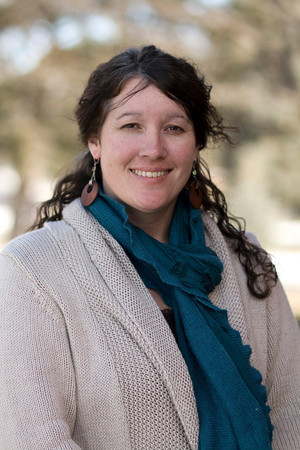Getting to Know: Applied Sciences

EDITOR’S NOTE: College Relations is publishing a monthly series of news articles, features and Q&A interviews highlighting various departments on campus in an effort to assist the faculty and staff in gaining an increased awareness about and understanding of each other’s roles and responsibilities.
The March Q&A is with Dr. Teresa Frink, the Applied Sciences department chair.
Q: What are your duties as chair of the department of Applied Sciences?
The primary duties I carry as chair include recommending class schedules and teaching assignments, leading curriculum revisions, program reviews and strategic planning, and assisting with student issues such as scholarships and complaints. I also schedule and conduct department meetings, provide input on budgets, programs, personnel and student issues, recommend teaching assignments, attend the annual chairs retreat and meet with the academic dean, periodically.
Q: What characteristics unite the diverse fields, Agriculture and Range Management, Family and Consumer Sciences, Child Development Center, in your department?
All of the programs in the Applied Sciences provide active, hands-on learning, with relevant field and lab experience that helps students make the connection between theory and practice. Applied Sciences also provides students with creative and critical thinking opportunities both in and out of the classroom. The faculty in Ag/Range and Family and Consumer Sciences work collaboratively to support a variety of student workshops, trainings and other educational opportunities, such as the recent hosting of Temple Grandin, an effort that involved FFA members from Chadron High School. Course offerings and farm-to-table initiatives in Applied Sciences focus on promotion of health and wellness, with the importance of sustaining agriculture and families as common elements. Quality care and education of children, along with quality care of animals, and promoting sustainability for future generations provide a common focus for Applied Sciences.
The CSC Child Development Center (CDC) was created in 1972 as a living laboratory for students in early childhood and elementary education. It became nationally accredited in 1989. Students from all disciplines utilize the CDC to gain experience working with children. The Nature Explore Outdoor Learning Environment at the CDC, developed in 2009, is a learning lab for nature-based play. It is a collaborative effort for Ag/Range and FCS students supporting the design, creation and care of the learning space. The CDC provides care and education for families with young children from the campus and community, and is inclusive-meeting the needs of children of all ability levels.
Q: How important is laboratory work for students in Applied Sciences?
Laboratory work is very important in the Range and FCS programs. These experiences allow students an opportunity to “get their hands dirty” and learn skills which are invaluable in their chosen fields.
Q: How does your department provide hands-on learning experiences for students?
In addition to laboratory work, students are provided with opportunities to engage in hands-on learning through volunteer work with state and federal agencies, undergraduate research projects such as the Nebraska Canid Project, participation in professional organizations, meetings and seminars, and internships with agencies and corporations in their fields.
Q: What are some of the career paths for graduates of your department?
Career paths for students in rangeland management include rangeland conservation, rangeland ecology, environmental consulting, wildlife biology, wildlife habitat management, rangeland livestock management, watershed ecology, invasive plant management, wildland or prescribed fire management, field botany, natural resource GIS, conservation education, restoration ecology, extension education, tribal land management, conservation law enforcement, and agronomy.
Career paths for students in FCS include child and family services consultant, child and youth coordinator, child caregiver and educator, child life specialist, curriculum specialist, early childhood educator, extension educator, family advocate, family life specialist, family service worker, preschool teacher, program director, teacher assistant, FCS teacher, business or industry professional trainer, education consultant, family finance consultant, government affairs specialist, legislative lobbyist, occupational and career technical education counselor, advertising and retail sales, apparel engineer, child or youth counselor, food editor, food service manager, food technologist, lifespan wellness educator, restaurant owner/manager, aging office housing director, care facility manager, day care provider, home care specialist, senior center director, case manager, housing assistance coordinator, independent living counselor, victim assistance advocate, adoption counselor, community center director, family services specialist, hospice team member and neighborhood programs coordinator.
Q: CSC’s rangeland program is very strong. What do you attribute that to?
I attribute the growth to the excellence of the current and former faculty, the personal nature of the professional relationships with students and faculty, outstanding alumni, exceptional students, and support and collegiality with the Department of Applied Sciences.
Q: What advantages does your department offer for potential CSC students?
Our department offers personable and caring faculty, small class sizes, camaraderie among students, a fun and engaging environment and hands-on experiences.
Q: What do you like best about teaching at Chadron State?
Apart from the meetings, the aspects I enjoy most about teaching at Chadron State College are the students I interact with in the classroom and in the field, working with former students professionally and the fantastic faculty and staff across the campus.
Category: Campus News, Family and Consumer Sciences, Range Management
